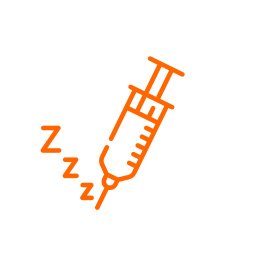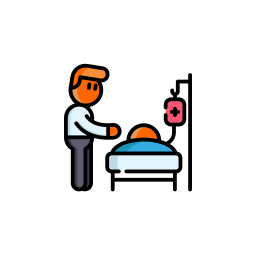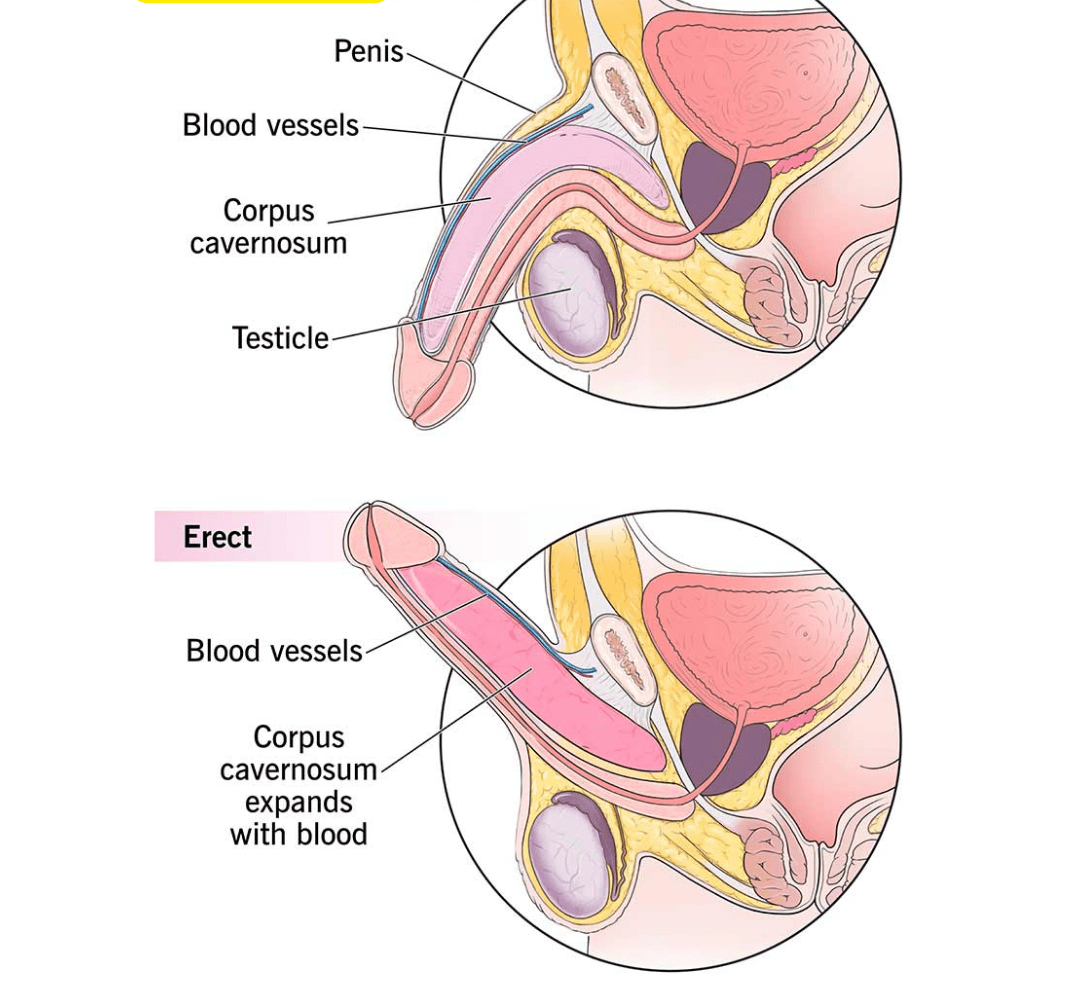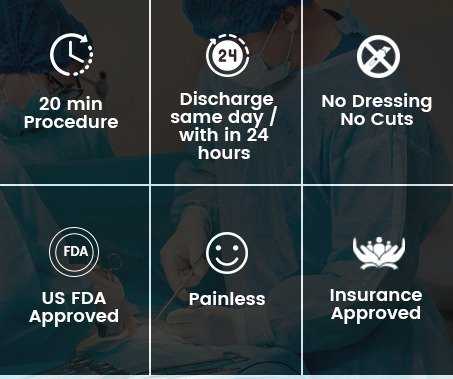Well Experienced Doctor
Most Advance Treatment
Patient Friendly Environment
TREATMENT FOR ERECTILE DYSFUNCTION
Minimal Pain
No Stitch
No Scar
30 Min Procedure

NO PAIN
NO CUT

ANAESTHESIA

ACCEPT AYUSHMAN CARD

24 HOUR OBSERVATION
TREATMENT FOR ERECTILE DYSFUNCTION
Minimal Pain
No Stitch
No Scar
30 Min Procedure

NO PAIN NO CUT

ANAESTHESIA

ACCEPT AYUSHMAN CARD

24 HOUR OBSERVATION

What is Erectile dysfunction?
The inability to achieve or sustain an erection long enough for coitus is known as erectile dysfunction (ED). An occasional difficulty achieving an erection is not always a reason for alarm ed dysfunction is a disorder that can lead to relationship issues, stress, and low self-esteem. The inability to achieve or sustain an erection may also indicate an underlying medical condition that requires medication and lifestyle changes to treat.
Types of Erectile Dysfunction?
Vascular erectile dysfunction
Vascular ED includes causes that affect the blood vessels that send blood to the tissues in your penis that allow you to get and maintain an erection, or the valves in the penis that normally hold blood inside. Vascular ED is the most common type of ED.
Neurogenic erectile dysfunction
Neurogenic ED occurs as a result of nerve problems, which prevent signals from traveling from your brain to your penis to create an erection. This can happen because of trauma, pelvic surgery, radiation therapy or neurologic conditions like stroke, spinal stenosis and multiple sclerosis (MS).
Hormonal erectile dysfunction
Hormonal ED refers to ED that happens as a result of testosterone deficiency, or in some cases as a result of thyroid issues.
Psychogenic erectile dysfunction
Psychogenic ED involves psychological conditions (conditions that affect your thoughts, feelings or behavior) that can cause ED.
How common is erectile dysfunction?
It is believed that erectile dysfunction affects more than 50% of men between the ages of 40 and 70. These figures may even be higher because many people are too ashamed or embarrassed to seek treatment for sex-related issues.
What are the symptoms of Erectile Dysfunction?
Erectile dysfunction symptoms are persistent:
- Issues with obtaining an erection.
- Difficulties sustaining an erection.
- Decrease in sexual libido.
What causes Erectile Dysfunction?
Emotions, hormones, nerves, muscles, the brain, and blood vessels are all involved in the complicated process of male sexual arousal. Issues with any one of these components might result in ED. Problems with erectile dysfunction can be brought on by stress or exacerbated by mental health issues.
A confluence of psychological and biological problems can occasionally bring on erectile dysfunction. For example, concern over sustaining an erection may result from a minor health issue (biological condition) that slows down your sexual response. Anxiety that follows may cause erectile dysfunction or make it worse
Psychological & Biological Cause
Biological causes:
Many times, a medical condition is the root cause of erectile dysfunction. Typical reasons include:
- Heart conditions
- Atherosclerosis (clogging in blood vessels)
- increased cholesterol
- increased blood pressure
- Prolonged diabetes and uncontrolled diabetes.
- Obesity
- Metabolic syndrome — A cluster of conditions, with high blood pressure, high insulin levels, body fat around the waist, and high cholesterol
- Parkinson’s illness
- Some prescription drugs
- Use of tobacco
Scar tissue growth inside the penis is a symptom of Peyronie’s disease.
Alcoholism and other substance misuse disorders
Sleep conditions
Curesfor prostate cancer or enlarged prostate
Surgeries or hurt that affect the pelvic area or spinal cord
Lower testosterone level
Psychological causes
An erection is the result of a sequence of biochemical events initiated by the brain, which starts with emotions of sexual excitement. Numerous factors can impede one’s ability to feel sexual and either cause or exacerbate erectile dysfunction. Among them are:
- Pressure
- Mental health issues such as anxiety and depression
- Relationship issues brought on by stress or workload, inadequate communication, or other issues
What are the Risk factors of erectile dysfunction?
- Medical Problems, Diabetes or heart conditions
- Tobacco use- limits blood flow to the arteries and veins, which over time can result in chronic health issues and erectile dysfunction.
- Being overweight,
- Radiation treatment for cancer or prostate surgery
- The nerves or arteries injured due to damage, that controls erections
- Medications-Antidepressants, antihistamines, and drugs for disorders relating to the prostate, discomfort, or elevated blood pressure
- Psychological problem- Pressure, anxiety or depression
- Drug and alcohol user, long-term drug user, or serious drinker
What is the Complications of erectile dysfunction?
The following are possible complications from erectile dysfunction:
- Sexual life- An unsatisfactory
- Pressure or tension
- Shame or low self-esteem
- Relationship difficulties
- Unable to conceive
Management
Many patients find that after answering the questions about their medical history, having a physical examination, and receiving advice from their doctor regarding blood tests to determine whether a chronic health condition may be the underlying cause of their erectile dysfunction, the doctor will propose a course of treatment.
Answering questions (medical history):
Do you currently take any medications, including over-the-counter, prescription, herbal, and nutritional supplements as well as non-medical drugs
- Have you ever had an anxiety or depression diagnosis from a physician
- Are you under stress frequently?
- Do you have any issues in your relationships?
- How frequently can you achieve an erection?
- How strong are your climaxes?
- For what duration can you sustain an erection?
- Do you experience a loss of erection due to early ejaculation?
- When did you initially become aware that you have erectile dysfunction?
- Do you have erections in the morning or at night?
- Which sexual postures do you frequently adopt?
Examinations for underlying diseases may consist of
- A physical examination: meticulous inspection of the penis and testicles, including testing for feeling in the nerves.
- Laboratory tests: To check for indicators of heart disease, diabetes, low testosterone levels, and other health concerns, a blood test may be sent to a lab to measure cholesterol, sugar, thyroid function, KFT, LFT, and testosterone levels.
- Tests on urine (urinalysis): Tests on urine to look for indicators of diabetes and other underlying chronic health issues.
- ultrasonic: Use a penile Doppler ultrasonography to assess the health of the blood vessels supplying the penis.
- Penile biothesiometry: an assessment to determine whether your penis’s nerves react to vibrations.
- Vasoactive injection: medication used to erect the penis temporarily; testing necessary
- MRA, or magnetic resonance imaging. If necessary.
.A psychological evaluation. Speak with your doctor. They might ask you questions to rule out depression and other potential psychological reasons for your erectile dysfunction.
Treatment
In ed treatment First, the physician makes sure the patient is receiving the appropriate care for any medical conditions that may be aggravating or causing the erectile dysfunction.
Patients may have several therapy choices depending on the erectile dysfunction’s aetiology and severity. A physician will take into account your and your partner’s preferences and discuss the advantages and disadvantages of each course of treatment.
Oral medications
For many men with dysfunction erectile therapy, oral medicines are a helpful treatment option. Among them are:
- Sildenafil
- Tadalafil
- Vardenafil
- Avanafil
All four drugs work by increasing the effects of nitric oxide (NO), which the body naturally produces and which relaxes the penis’s muscles. This permits An erection may occur as a result of increased penile blood flow in response to sexual stimulation.
Your penile nerves must first be stimulated sexually in order to release nitric oxide. These drugs strengthen that signal, enabling the patient’s penis to operate normally during erections. ED patients who get regular erections do not require oral medicine, nor would it excite them.
- Releasing testosterone: Erectile dysfunction is a result of low testosterone hormone levels in certain individuals. Testosterone replacement therapy was advised for that patient either as a stand-alone treatment or in conjunction with other therapies.
Penis pumps, surgery, and implants
Penis pump with battery power for erectile dysfunction magnify the picture.
If oral medications prove to be inappropriate or ineffectual, the doctor may suggest alternative treatment choices such as
penis pumps. A hollow tube pump that may be operated by hand or with a battery is known as a penis pump (vacuum erection gadget). After the tube is positioned over the penis, the air inside is drawn out of it using a pump. A vacuum is created as a result, drawing blood into the penis.
Put a tension ring around the base of the penis after the patient achieves erection to keep the blood contained and the tissue hard. After that, the patient removed the hoover.
Usually, an erection lasts long enough for a couple to engage in sexual activity. Penis bruises are a potential adverse effect, and the band will limit your ability to ejaculate. You may sense a chill when you touch your penis.
- Penile implants.
- Exercise
Some studies Says:
Aerobic exercise ranging from moderate to intense can help with erectile dysfunction.
Elevated physical activity and regular exercise may both lower and improve the risk of erectile dysfunction.
Talk to your doctor about starting an exercise regimen.
psychological assistance
Your doctor may advise you to see a psychologist or counselor if you are experiencing stress, anxiety, or sadness, or if the condition is causing you to have strain in your relationships.
Lifestyle and home remedies
Many people’s lifestyle decisions either cause or exacerbate erectile dysfunction. Here are some actions that could be useful:
- Give up smoking, if you do
- Reduce excess weight
- Engage in regular activity
- Seek therapy for drug or alcohol abuse;
- Attend couples counseling for marital problems.
What is the best way to fix erectile dysfunction?
The first step in treating erectile dysfunction is identifying the underlying cause. A healthcare provider will help determine the best treatment for you. Treatment options may include:
- Cardiovascular exercise. Vigorous cardiovascular exercise for at least 45 minutes three times per week may help reverse some cases of mild ED. Cardiovascular exercises may include brisk walking, jogging, swimming, bicycling and jumping rope.
- Quitting smoking. For men with mild ED, quitting smoking can lead to improvement after several months.
- Talking to a sex therapist.
- Oral medications that help increase blood flow to your penis, including sildenafil (Viagra®), vardenafil (Levitra®), tadalafil (Cialis®) or avanafil (Stendra®). Oral medications start to work within an hour.
- Penile low-intensity focused shockwave therapy (LiSWT). This noninvasive treatment improves blood flow by using sound waves. It can take two months to see improvement.
- Medications you inject directly into your penis to create an erection, including alprostadil (Caverject®), papaverine (Papacon®), phentolamine (Regitine®) or a combination of multiple medications. Injectable medications start to work within 10 minutes.
- Vacuum constriction device (penis pump). Penis pumps start to work almost immediately.
- Testosterone replacement therapy, which is available as a gel, injection, patches and pellets. Testosterone replacement therapy starts to work within four weeks.
- Penile implant procedure. A penile implant is a procedure in which a surgeon places a device into your penis to make it hard. The device doesn’t affect sensation, peeing or orgasm.
Will ED go away on its own?
ED will not likely go away on its own without changes to your lifestyle or some kind of treatment.
Prevention
To avoid erectile dysfunction, adopt a healthy lifestyle and take care of any current medical issues. As an illustration:
- Manage your heart disease, diabetes, or other long-term health issue.
- Get frequent checkups and medical screenings
- Quit smoking and restrict or abstain from alcohol and drugs.
- Routine exercise
- Practice yoga to help you de-stress.
- If you suffer from anxiety, depression, or any other mental health issue, see a doctor.
FAQs Around Erectile Dysfunction(ED)?
Oral drugs like vardenafil (Levitra), tadalafil (Cialis), and sildenafil (Viagra) are the main therapies for ED. These medications improve blood flow to the penis, which helps to get and keep an erection.
Yes, non-pharmacological treatments include penile implants, vacuum erection devices, and lifestyle modifications like consistent exercise, eating a balanced diet, and taking care of underlying medical disorders.
Yes, leading a healthy lifestyle that includes consistent exercise, eating a balanced diet, and abstaining from tobacco and alcohol usage can improve erectile performance.
Counseling or cognitive-behavioral therapy (CBT) may be helpful for ED brought on by psychological conditions including stress, anxiety, or relationship problems.
Some men go for complementary therapies such as ginseng, acupuncture, or specific vitamins. Nevertheless, the efficacy of various methods varies, thus seeking medical advice before using any alternative ED remedies is advised.





